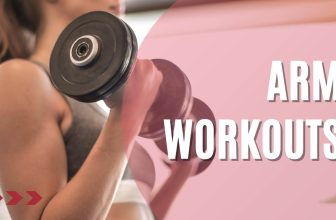Table of Contents
Any attempt to lose weight should refer to low-carb consumption. It might sound simple but you have to calculate the proper amount of carbs in your diet so you don’t gain too much weight or lose it uncontrollably. WhichChoose will give you the best answer about how many carbs for weight loss in this article. Scroll down!
What Are Carbs for Weight Loss?
‘Carbornhydrates’ is the technical term for all sugars, both simple (like table sugar) and complex carbs that contain starch and fiber (like potatoes and rice). Carbs are a preferred fuel source for the body and brain and are important for higher-intensity sports, like sprinting and weight training, yet are not essential for daily body function. In other words, the body can survive without carbs by relying solely on fats and proteins.
Carbs are found in everything plant-derived, including fruits and veggies, grains and legumes, as well as more processed foods and beverages, like bread and fruit juice. Carbohydrates containing more fiber and natural sugars, like vegetables and whole grains will be absorbed into the bloodstream slower (low glycemic index) than those with minimal fiber and more processing (high glycemic index); think baked potato with the skin vs. French fries.
Carbs, regardless of the source, shouldn’t be seen as either good or bad, rather, consuming certain types of carbs, in certain amounts, at certain times, can have a significant impact on blood sugar. High glycemic index carb sources, like bread and soda, especially when consumed in high quantities, stimulate the secretion of insulin, which can trigger weight gain.
Why Would You Want to Eat “Low-Carb”?
Let me be very clear about this – to lose weight, one needs to create some level of caloric restriction. Period.
Low-carb diets or simply eating low-carb, by restricting bread, pasta, sweets, and even fruits, can create a caloric deficit that can help people lose weight, at least in the initial stages of implementation due to a decrease in water retention.
With longer-term implementation, there have been some well-recognized health benefits associated, including lower blood sugar, blood pressure, and triglycerides as well as improvement in HDL and LDL numbers.
How Does Eating Low Carb Work?
Simply stick to mostly lean meats, fish, eggs and veggies, healthy fats, full-fat dairy, and some nuts and seeds. There’s no clear-cut definition about what constitutes “low-carb” and, therefore, will vary from person to person based on physical activity, body type, age, gender, and general health.
However, for those who want to have their cake (and eat it too), the low-carb craze can be quite the conundrum.
So is it possible to eat carbs and still lose weight?
How Many Carbs Should You Eat?
A good rule of thumb for most people looking to lose some body fat is to strictly avoid (at least 90% of the time) the unhealthiest sources of carbs, including:
- Bread
- Pasta
- Baked goods, e.g., cookies and cakes
- Sugary beverages, e.g., fruit juice and soda
Here are some common foods and their carbohydrate loads:
| Carbohydrate Source | Carbohydrate (grams) |
| 1 Cup pasta or rice | 45 |
| 1 12 oz soda or glass of fruit juice | 40 |
| 1 Medium potato or 1 cup of steel cut oats | 30 |
| 1 Slice of bread or ½ English muffin | 15 |
| 1 Small fruit/1 cup berries | 15 |
| 1.5 cups veggies (broccoli, greens beans) | 15 |
| 1 Cup milk | 12 |
Just to put things into perspective here, a 12-oz can of Coca-Cola is roughly 40g of carbohydrates. A couple of these per day, coupled with a bag of pretzels or morning bagels, can throw you far above your caloric needs with very little nutritional value (if any).
Remember, weight loss is about creating some level of caloric restriction, which means being aware of your portion sizes, including fats and proteins.
4.1. Liberal Consumption (200+ grams per day)
This is a good range for those that are more physically active and already lean or looking to build muscle mass.
Sources:
- Unlimited low starch veggies (think colorful veggies)
- A few pieces of fruit per day
- Starchy/fibrous sources of carbs, like potatoes, rice, and whole grains (those that need to be slow-cooked and are chewier, like steel-cut oats). 3-4+ cups per day
- Sports drinks or gels
4.2. Moderate Carb Consumption (150+ grams per day)
This range may be more appropriate for those that are physically active and are choosing to eat a little less daily for weight loss.
Sources: Similar to liberal, but focus on consciously eating just a little less.
4.3. Minimal Carb Consumption (<100 grams per day)
This would be a great starting point for those looking to get a jump on their weight loss plan by sticking mainly to lean protein and veggies, healthy fats (like olive oil and avocado), and minimal fruit.
Carbs play a crucial role in our daily meals despite the bad reputation people give them whenever they talk about weight loss. To lose weight effectively and safely, it is all about adjusting the number of carbs you consume. Whether it’s carbs for weight loss or not, don’t avoid it completely; otherwise, you’ll lose weight uncontrollably, which is dangerous. WhichChoose hopes this article has been helpful to you!
WhichChoose is the website products and services review that helps users in the world to find what the best is and shop easily.






